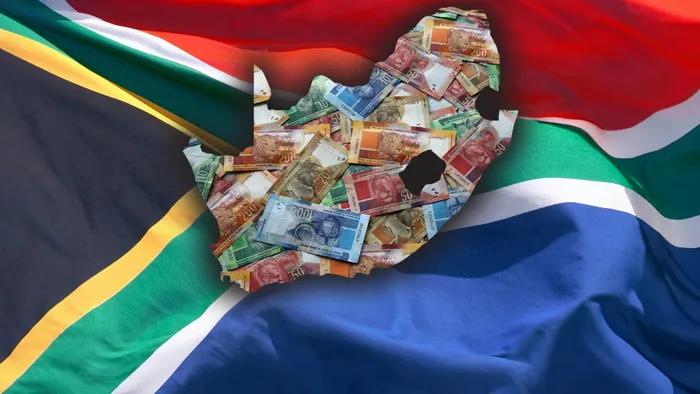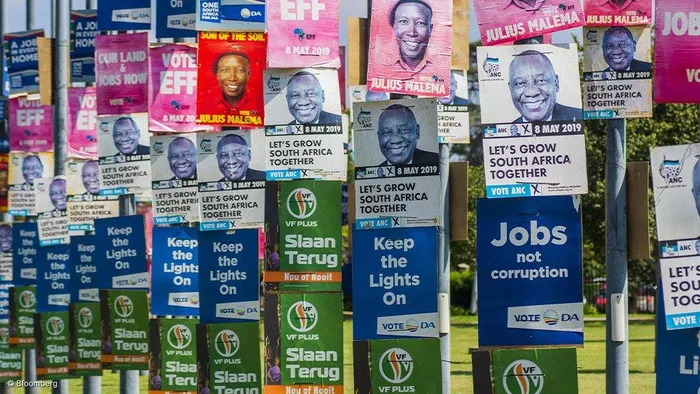Ramaphosa takes us back to greater secrecy in political funding

Experts fear the massive increases in political; funding limits will see South awash with dark money.
Image: London School of Economics
Joel Bregman
On 18 August 2025 a proclamation signed by President Ramaphosa to double the disclosure threshold and annual donation limit in the Political Funding Act (PFA) was published in the Government Gazette (No 53182). The proclamation is dated August 6 but was only published yesterday.
The new annual donation limit will be R30m, up from R15m, and the new disclosure threshold will be R200 000, up from R100 000. This will deepen secrecy in political funding and make it easier for private interests to influence our politics and for corruption to occur.
Politics requires funding and the role parties play in a democratic system is vital. But there needs to be a balance between ensuring that parties are adequately funded, and that such funding is regulated and mitigates the risk of undue influence from donors. The decision by the President – based on a resolution adopted first by the Portfolio Committee on Home Affairs and then the National Assembly – does not strike such a balance.
It fails to do so because the new limits are not based on empirical, context-specific evidence and research that took balancing factors into consideration. Rather, this is a politically expedient power grab that diminishes our ability to exercise constitutional rights, namely, our political rights (section 19) and our right of access to information (section 32).
What it means for political funding
The immediate impact of a higher disclosure threshold and donation limit is that we will have more secrecy in political funding. The details of all donations under R200 000 will not be known to the public.
This is an enormous sum for most South Africans and donations of such amounts should be made public knowledge to facilitate scrutiny of parties’ relationships with donors and ensure that donors are not receiving anything in return. Further, when a right is to be limited – in this case, the two rights mentioned above – there needs to be adequate justification for doing so.
The State has never provided a legitimate reason why all donations should not be disclosed to the public.
The last four years of disclosure data show that a handful of wealthy individuals dominate our private political funding landscape. Doubling the amount a donor can donate to a party in a year to R30m will give donors an even greater ability to have an outsized influence on our political system. It will also make parties more susceptible to undue influence. And because the law does not regulate donations from related parties through the different legal entities they control, wealthy donors can now have an even more significant impact.

South Africa stands out as an outlier for being a middle-income country with a higher private donation upper limit than many higher-income nations.
Image: File
What should have happened
Assessing whether the limits are still appropriate and factoring in inflation from time to time is standard procedure. When the opportunity arose, My Vote Counts (MVC) was hopeful that Parliament would remedy the limits to make them fit for the South African context. This is an issue that MVC has long argued – that the original limits adopted in 2021 were not only too high, but had been adopted without due regard to empirical evidence and were therefore irrational and unlawful.
As part of the Portfolio Committee’s process to re-evaluate the limits, the Parliamentary Budget Office (PBO) was tasked with and produced a well-considered report to assist Parliament in its review.
Crucially, the report found that ‘South Africa stands out as an outlier for being a middle-income country with a higher private donation upper limit than many higher-income nations… where stricter regulations impose private donation limits based on minimum wage multiples or campaign expenditure limits’. The PBO proposed four options with respect to the upper limit and three options for the disclosure threshold, outlined here for the Committee to consider.
The report considered the necessary balance of various factors, including that running a political party is an expensive operation. It provided the Committee with several potential formulas for a new limit and threshold, each underpinned by a clear rationale and accompanied by appropriate evidence. Importantly, the PBO acknowledged that there was no rational basis for the original limits of R15m and R100 000.
Instead of taking the time to do the actual work of developing limits that are fit for South Africa, as the PBO suggested, the Portfolio Committee and then the National Assembly instead decided to reject and ignore the research. As a result of this intentional misstep, the original 2021 limits became the basis from which amendments to the limits were proposed and debated, tainting the entire process with irrationality.
Led by the ANC, it was clear that most political parties in Parliament had largely already made up their minds before the PBO report. They wanted less oversight and fewer restrictions on donations from wealthy donors, regardless of the consequences for democracy, and for transparency and accountability. Moreover, they seemed unconcerned with needing to justify to the public why they wanted to double the limits, a decision that was clearly at odds with the evidence and research in front of them.
What happens next
When the PFA was first developed in 2017, MVC was concerned that the original limits would dilute the Act, but we nevertheless celebrated the fact that for the first time, we had a law that provided a light into the darkness. Overall, it was an enormously positive development.
While recognising the PFA’s importance, it is clear that the law has many defects that limit its ability to achieve its objectives. Considering this, in 2023, we initiated legal proceedings to challenge the constitutionality of the PFA. After lengthy delays, MVC’s case was heard before a full bench of the Western Cape High Court in February 2025. A key component of our challenge is that the original limits were not formulated with reference to empirical evidence and were therefore irrational and unlawful.
We asked the Court to find the limits unconstitutional, and refer them back to Parliament for remedying. We also asked the Court to find that the President’s power to make the final determination on the limits (a power that arose through an amendment to the law after our initial papers were filed) was also unconstitutional because it placed too much power in a conflicted officeholder who is both head of the Executive and (in most cases) the head of a political party.
Judgment is pending in this matter. Should our case succeed, the amendments to the Act will be set aside with full retrospective effect, including the determination of these new limits.
While we await judgment, we are considering other legal options to address the President’s action. We will also be writing to the President to request that he release the reasons and full record of factors that were considered as he applied his mind to this matter.
This is indeed a setback for our democracy. We cannot allow those in power to jeopardise our democracy and water down constitutionally protected rights for their narrow, self-serving interests. MVC will continue to advocate and litigate when necessary, to ensure the PFA is constitutional and upholds the principles of transparency and accountability.
Joel Bregman is the Project Lead on Money in Politics at My Vote Counts